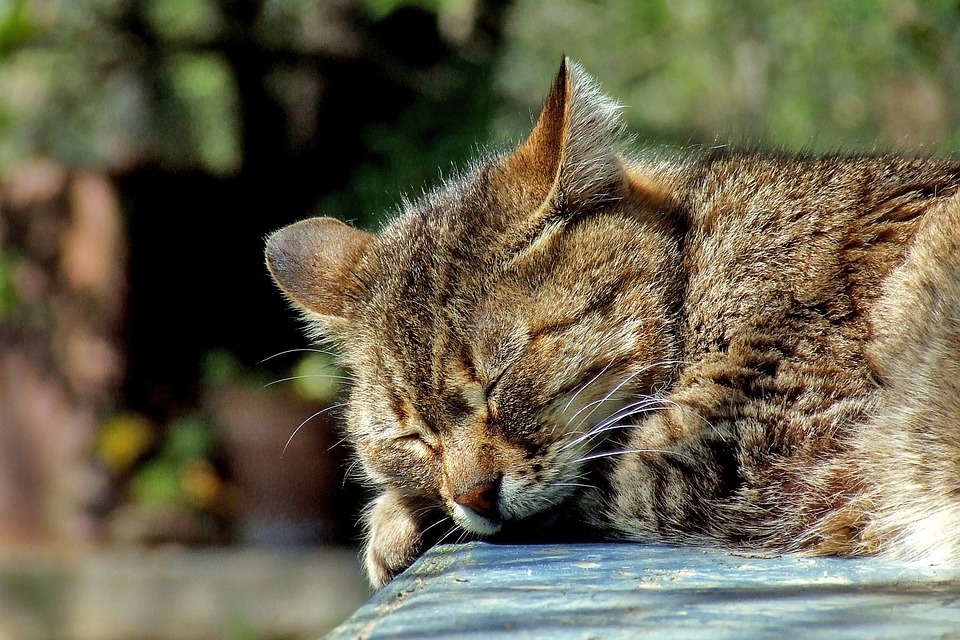Cats are known for their luxurious coats, but what happens when your feline friend starts experiencing hair loss? Cat hair loss, also known as alopecia, can be a cause for concern for many cat owners. In this article, we will explore the common causes of cat hair loss and provide practical solutions to help you address this issue. Additionally, we will answer some frequently asked questions to further assist you in understanding this condition.
Common Causes of Cat Hair Loss:
1. Allergies:
Allergies can cause cat hair loss, and there are several types to be aware of. Flea allergy dermatitis occurs when cats have an allergic reaction to flea saliva. Food allergies can cause hair loss, and the cat may also experience gastrointestinal symptoms. Environmental allergies, such as pollen or dust mites, can also lead to hair loss.
2. Parasites:
Parasites like fleas, mites, and ringworm can cause hair loss in cats. Fleas can irritate the skin and cause excessive scratching, leading to hair loss. Mites can cause mange, a condition that results in hair loss and skin irritation. Ringworm is a fungal infection that can cause circular patches of hair loss.
3. Infections:
Bacterial and fungal infections can also be responsible for hair loss in cats. Bacterial infections can occur due to scratches or wounds that become infected. Fungal infections, such as ringworm, can cause hair loss and itchy, scaly skin.
4. Hormonal Imbalances:
Hormonal imbalances can lead to cat hair loss. Hyperthyroidism, an overactive thyroid gland, can cause hair loss and other symptoms like weight loss and increased appetite. Cushing’s disease, which is caused by excessive production of cortisol, can also lead to hair loss in cats.
5. Stress and Anxiety:
Stress and anxiety can contribute to cat hair loss. Environmental changes, such as moving to a new home or the addition of a new pet, can cause stress and lead to hair loss. Emotional distress, such as the loss of a companion or a traumatic event, can also result in hair loss.
Solutions for Cat Hair Loss:
1. Consult a Veterinarian:
If your cat is experiencing hair loss, it is crucial to consult a veterinarian for a proper diagnosis. The veterinarian will be able to determine the underlying cause and recommend appropriate treatment options.
2. Address Allergies:
If allergies are the cause of your cat’s hair loss, it is essential to address them. Use flea prevention and control measures to eliminate fleas. Identify and eliminate potential food allergens from your cat’s diet. Reduce your cat’s exposure to environmental allergens by keeping the environment clean and dust-free.
3. Manage Parasites:
Regular flea treatment is crucial to manage parasites that can cause hair loss. Consult with your veterinarian for appropriate mite and ringworm treatments if necessary.
4. Treat Infections:
If your cat has a bacterial or fungal infection, your veterinarian may prescribe antibiotics or antifungal medications to treat the infection and promote hair regrowth.
5. Hormonal Imbalance Treatment:
For hormonal imbalances like hyperthyroidism or Cushing’s disease, your veterinarian may prescribe medication and recommend monitoring to manage the condition and potentially promote hair regrowth.
6. Reduce Stress and Anxiety:
Create a safe and calm environment for your cat to reduce stress and anxiety. Provide enrichment activities and ample playtime to keep your cat mentally and physically stimulated.
Frequently Asked Questions (FAQs):
Q1: Is it normal for cats to shed their fur?
A1: Yes, it is normal for cats to shed their fur, especially during shedding seasons. However, excessive hair loss or bald patches may indicate an underlying issue.
Q2: How can I tell if my cat’s hair loss is due to an allergy?
A2: If your cat’s hair loss is accompanied by itching, redness, or skin irritation, it may be due to an allergy. Consult with your veterinarian for a proper diagnosis.
Q3: Can stress alone cause hair loss in cats?
A3: Yes, stress can contribute to hair loss in cats. Cats may excessively groom or scratch themselves due to stress, leading to hair loss.
Q4: Can I use over-the-counter flea treatments for my cat?
A4: It is always best to consult with your veterinarian before using any flea treatment on your cat. Some over-the-counter treatments may be ineffective or even harmful to your cat.
Q5: Are there any home remedies to treat cat hair loss?
A5: It is recommended to consult with a veterinarian for an accurate diagnosis and appropriate treatment. While there are some home remedies, such as oatmeal baths or coconut oil, they may not address the underlying cause of hair loss and could potentially worsen the condition.
Conclusion:
Cat hair loss can be a distressing issue, but with the right knowledge and proper veterinary care, it is often manageable. By identifying the underlying causes and implementing appropriate solutions, you can help your furry friend regain their healthy coat. Remember, always consult with a veterinarian for an accurate diagnosis and tailored treatment plan. With patience and care, you can support your cat’s overall health and well-being.








